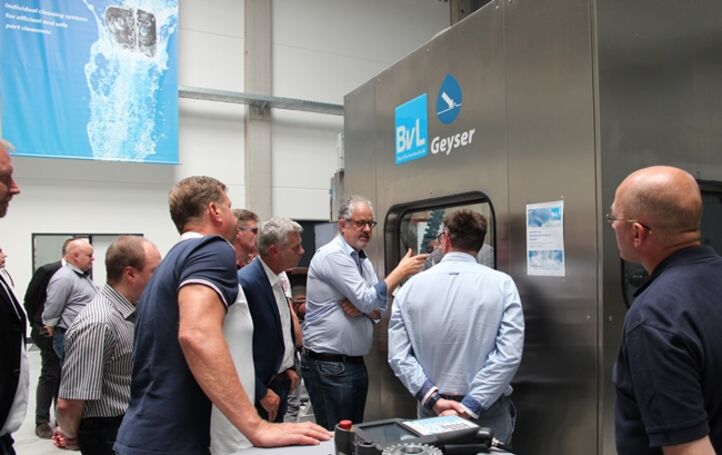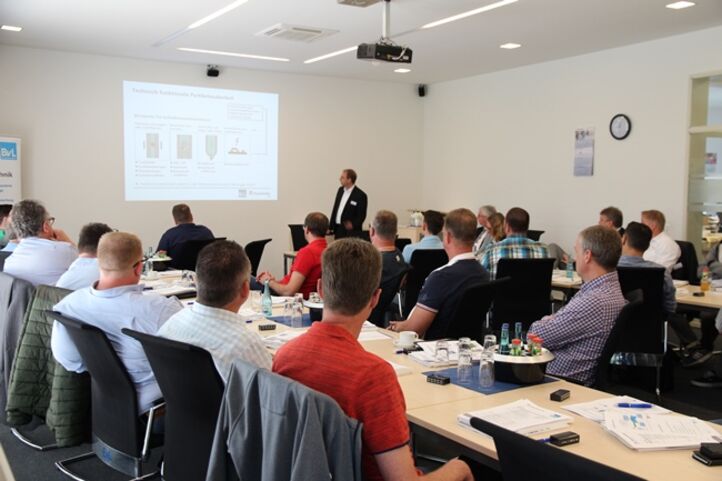Future-oriented cleaning technology with practical relevance
Carefully planned system concept is an important topic at the BvL practical seminar
As in previous years, this year's practical seminar at the beginning of June at BvL Oberflächentechnik GmbH in Emsbüren attracted great interest and was again fully booked with 30 participants. The invited speakers dealt with a wide range of cleaning topics in various specialist lectures. In addition to Dr.-Ing. Markus Rochowicz, who, among other things, highlighted the current trends in component cleaning, presented Michael Appel from Liebherr GmbH with modern automation concepts. In addition, Sarah Kamphoven from Siemens AG presented the possibilities of standardized data exchange in connection with intelligent cleaning monitoring. The participants were also able to Discuss individual questions intensively in smaller focus groups with the BvL cleaning specialists. Finally, various cleaning systems were demonstrated in the production hall and test cleaning was carried out.
Save costs with the right cleaning technology
One of the key issues during the event was the need to thoroughly plan the cleaning process. The cleaning result is decisively influenced by the type and amount of contamination as well as the geometry and surface of the component. If, for example, there are particle traps on a component, these must be uncovered urgently so that jamming chips and burrs can be safely removed. The variant must then be selected from the various types of cleaning technology that enables reliable cleanliness in accordance with the cleanliness requirements and represents the most cost-effective solution from these points of view. The purity requirement can also vary depending on the component. Both with regard to the particles to be removed and film-chemical residues, both the technical-functional cleanliness and the decorative cleanliness play a role. In the automotive industry, the latter is definitely important in terms of design. With regard to the technical-functional aspect, it can even be dangerous if, for example, a particle in the hydraulic system blocks a valve.
Particularly high purity requirements due to e-mobility
E-mobility also gives rise to new issues with regard to technical cleanliness. In the battery production process, particle cleanliness is an absolute must in order to avoid dangerous battery fires. It is also important to note the production environment and the integration of the cleaning process into the production process. With well thought-out automation concepts and a combination of different cleaning processes, recontamination during loading and unloading can be avoided.
Intelligent cleaning systems are future-oriented
In every new cleaning concept to be planned, resource-saving maintenance and energy saving also play an important role. The intelligent BvL cleaning systems have a wide variety of predictive maintenance options, depending on the process. These smart cleaning systems recognize, for example, the condition of the bathroom soiling or when a filter change is required. This ensures that the cleaning system operates in a way that conserves staff and resources.

